Abstract
The survival of skin homo- and heterografts on isologous CBA mouse chimaeras has been investigated. Homografts usually persist for considerably longer than on normal unirradiated mice. Immunization of the host against the appropriate foreign antigens before irradiation neither reduces nor increases the duration of this persistence. When an irradiated non-immune host is restored with bone marrow from an immunized donor, a measure of immunity is transferred.
If adult spleen cells from normal or immunized donors are added to the restorative inoculum, strongly antigenic foreign skins are shed with something like normal rapidity, but weakly antigenic skins may be retained for 100 days or more, and even indefinitely.
Heterografts do not enjoy a span of survival comparable with that of homografts.
These findings are discussed, and it is concluded that two factors are of importance in the prolongation of graft survival: (1) A weakening of the mechanism by which antigens are recognized as foreign, (2) an overall central depression of the immune response.
Full text
PDF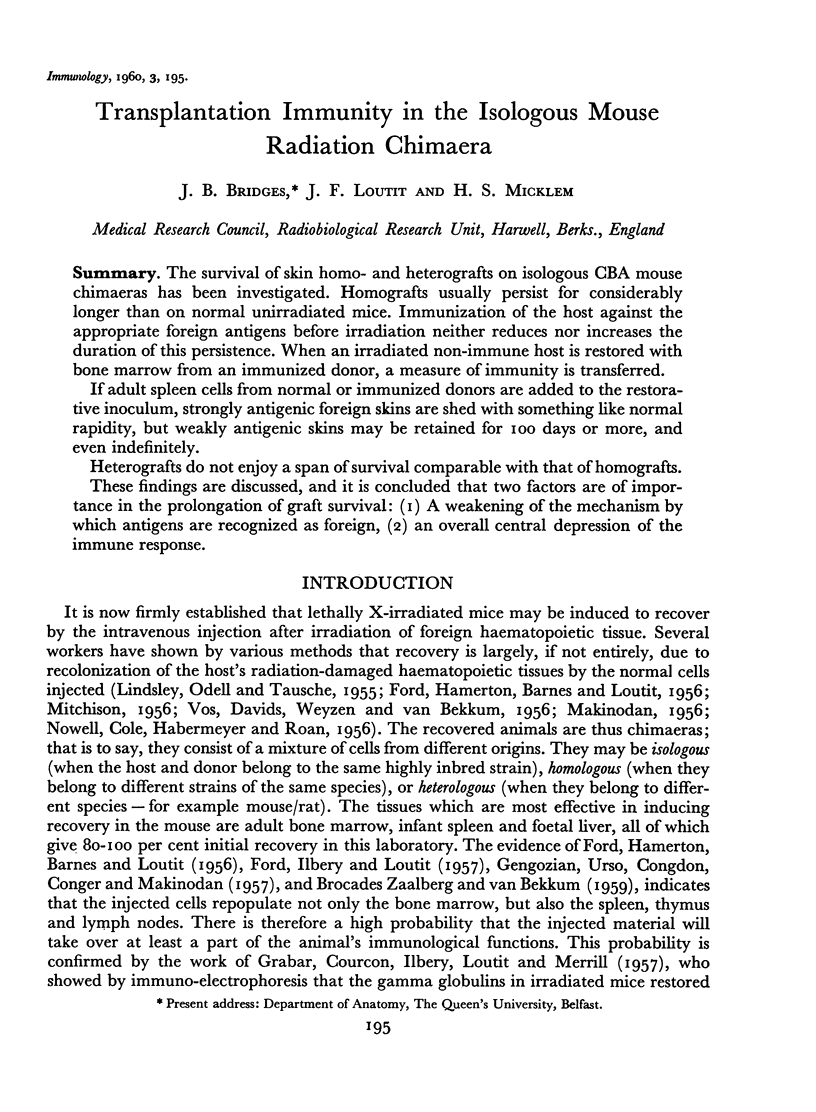
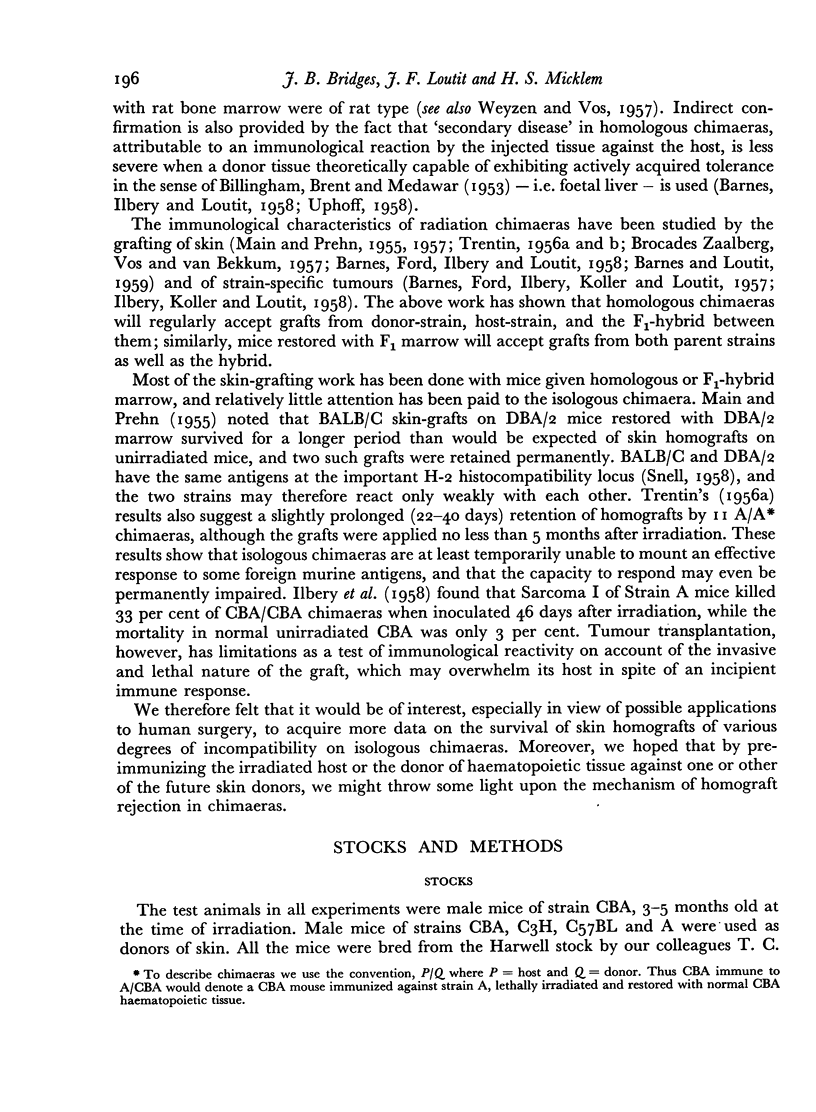
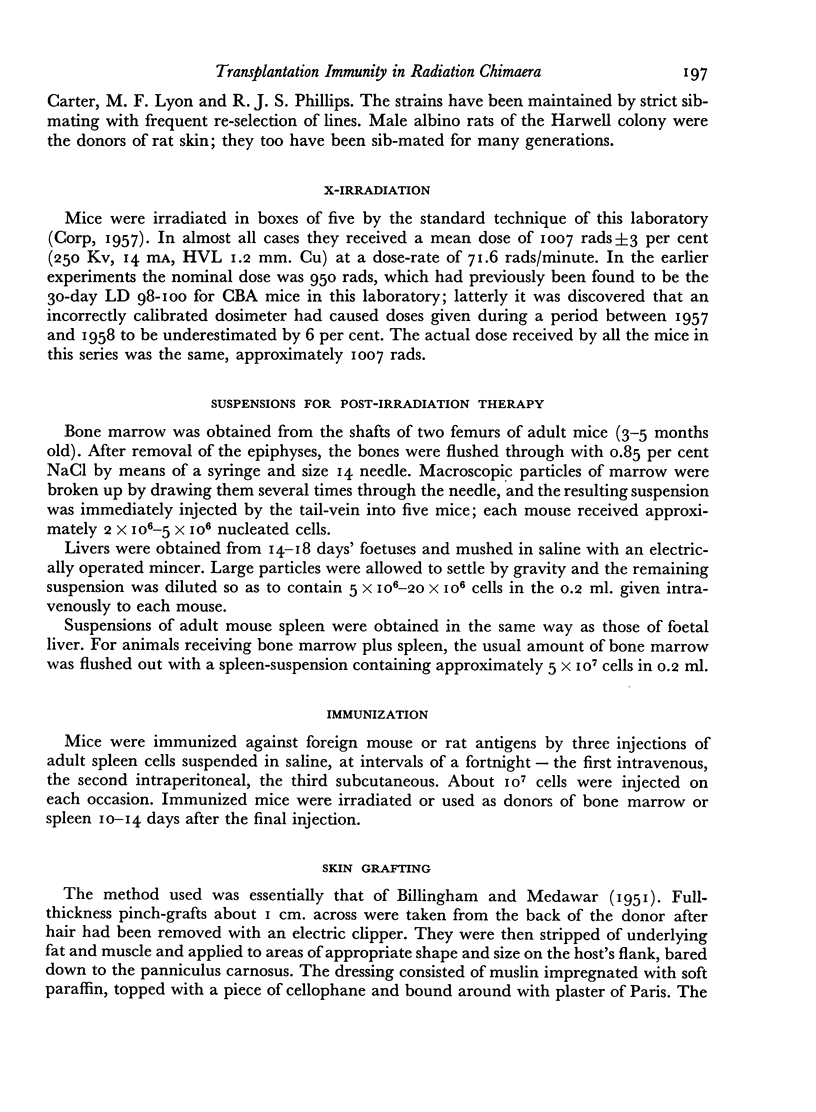
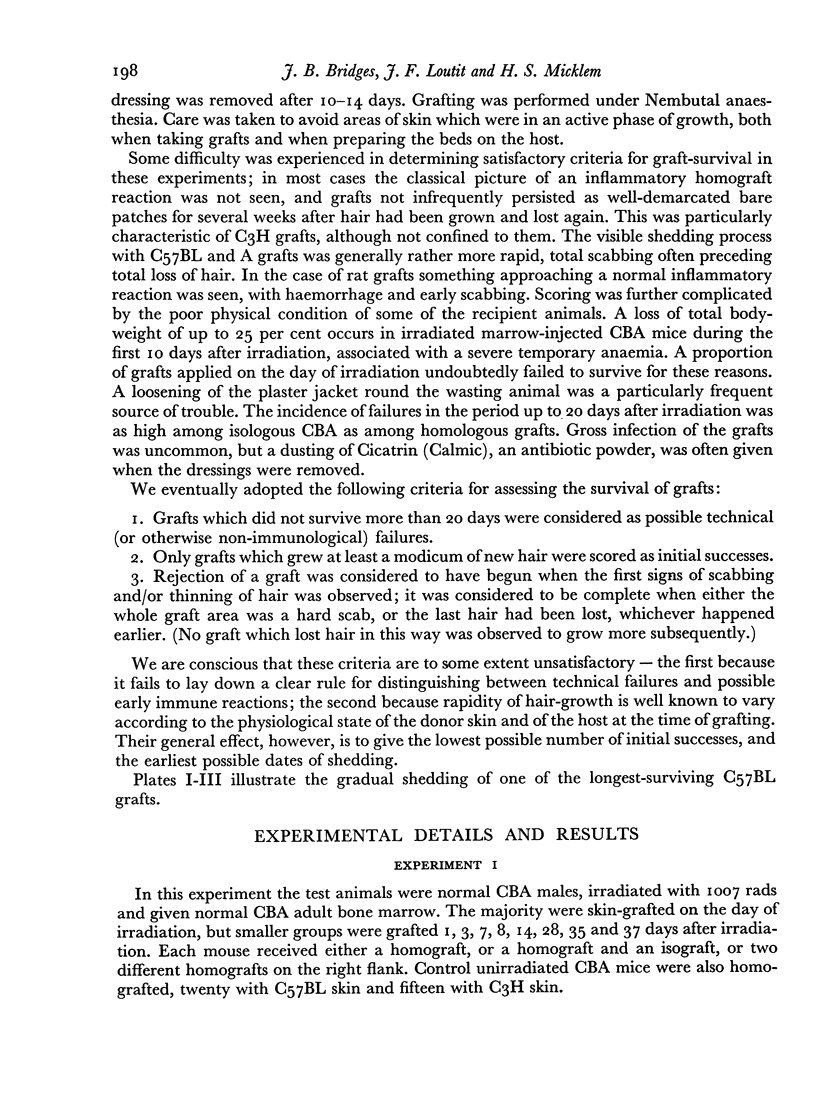
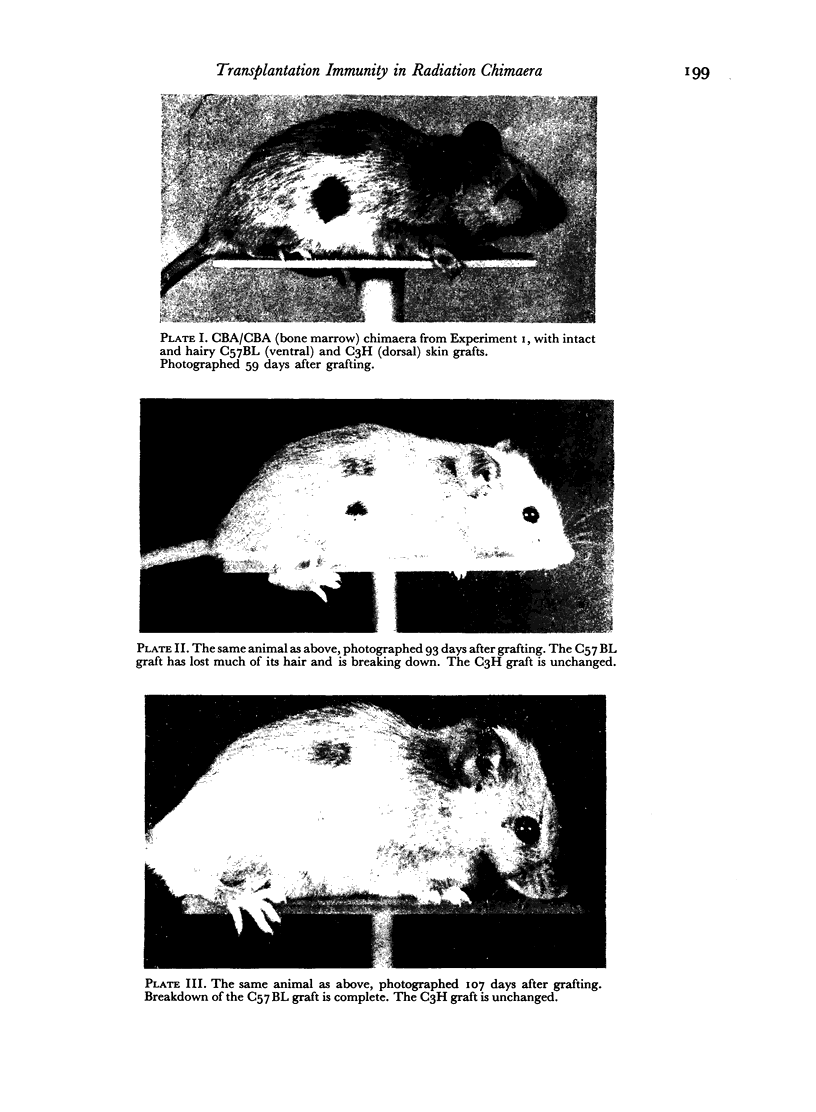
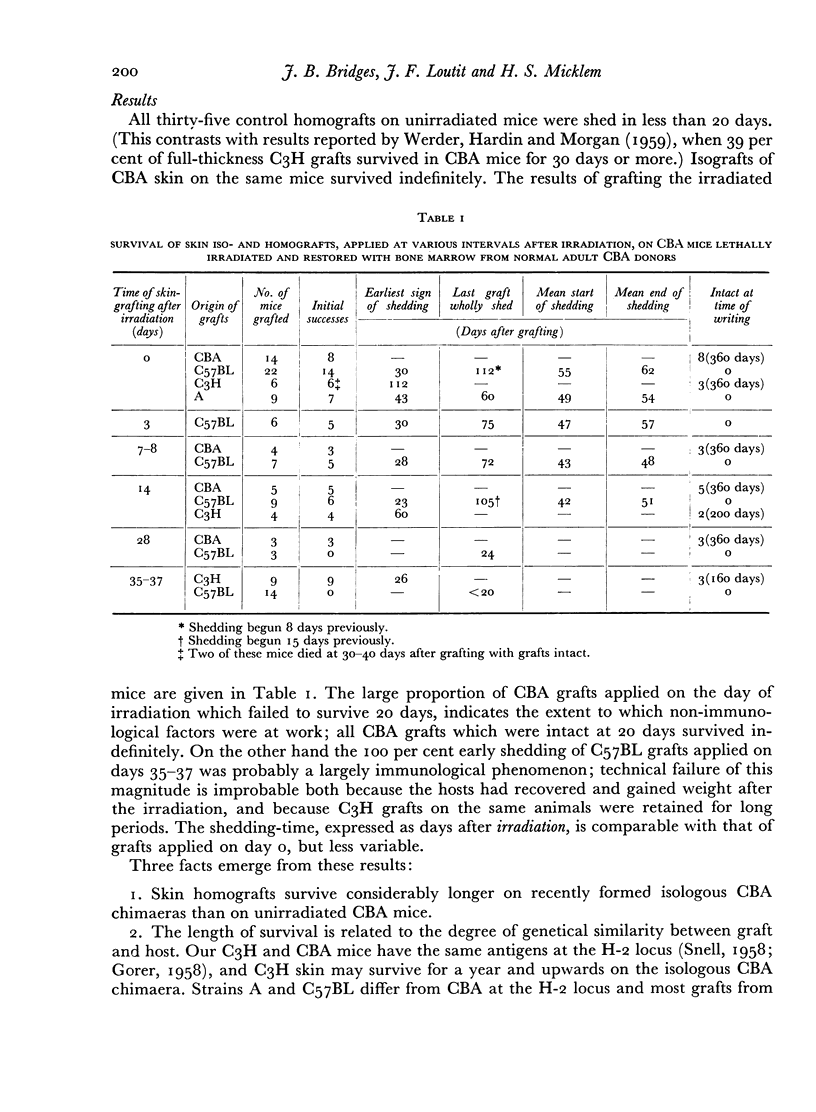
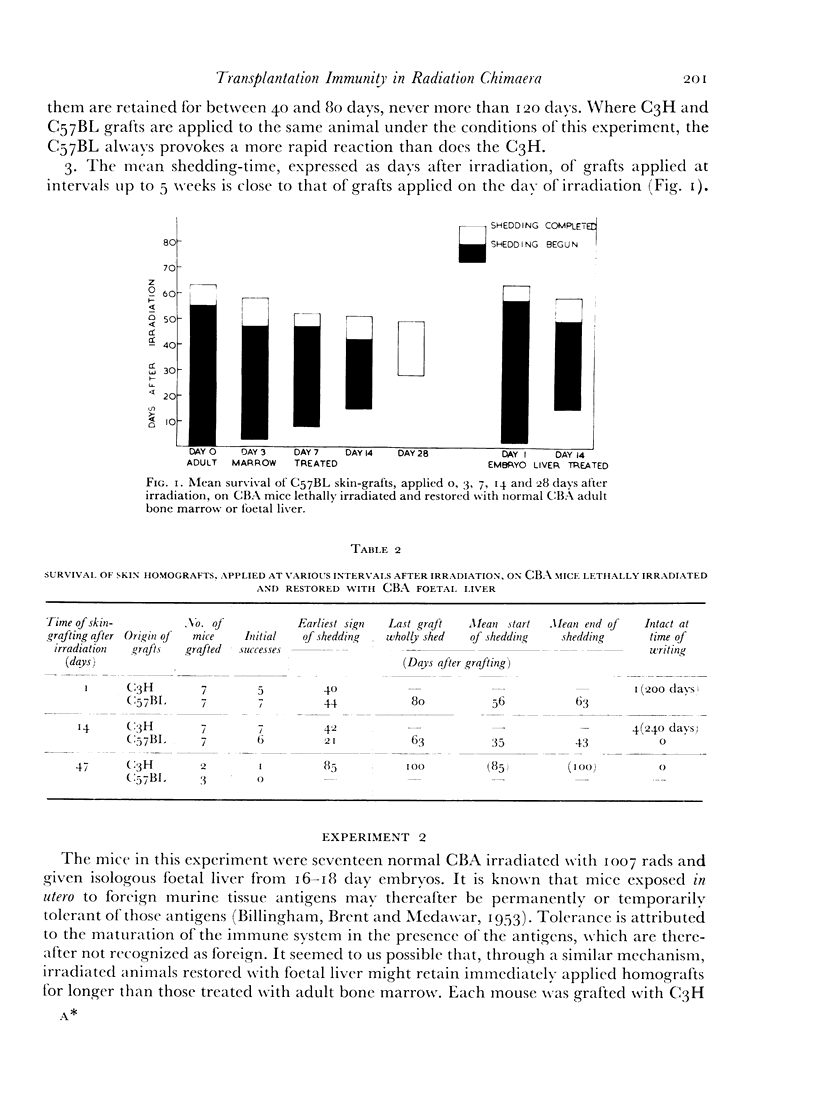
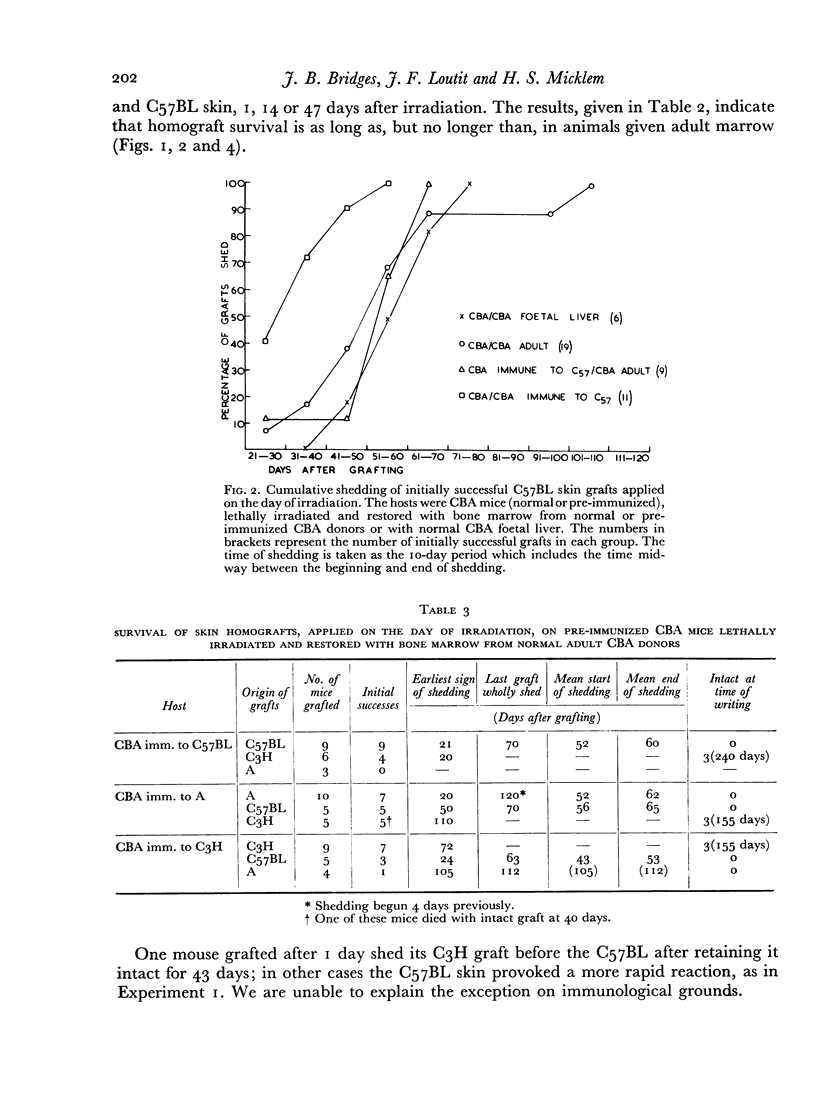
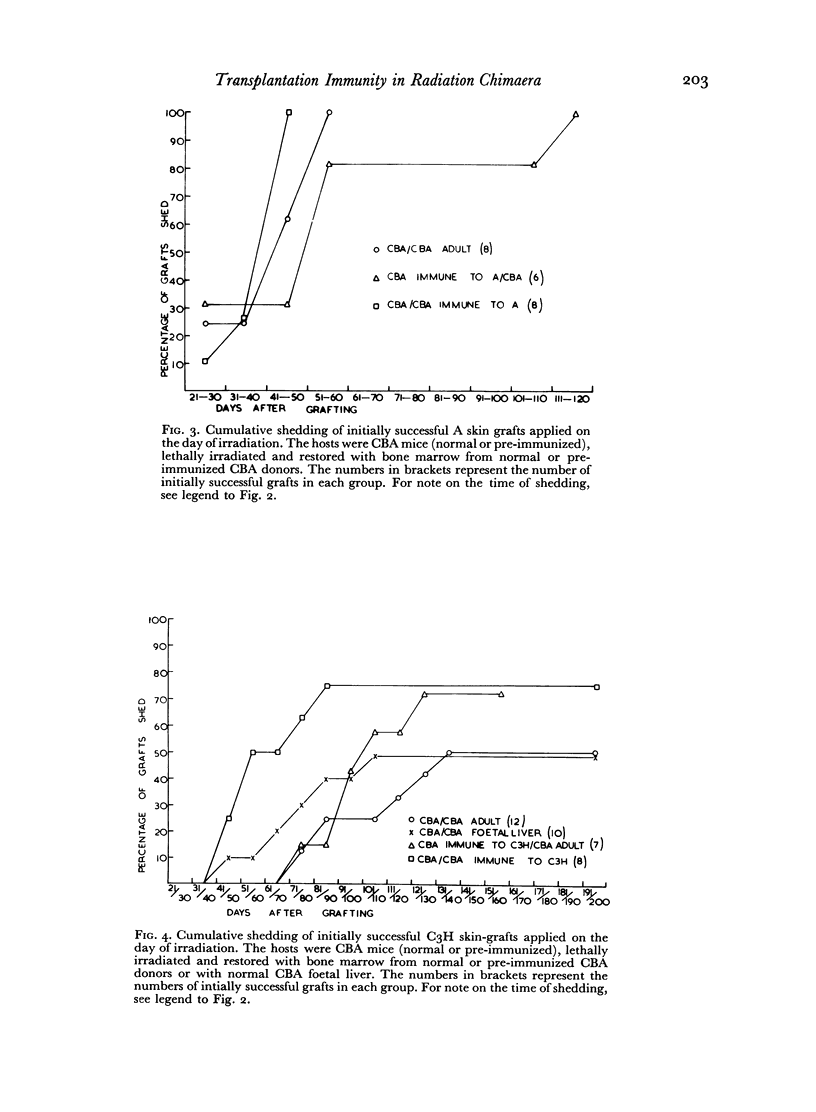
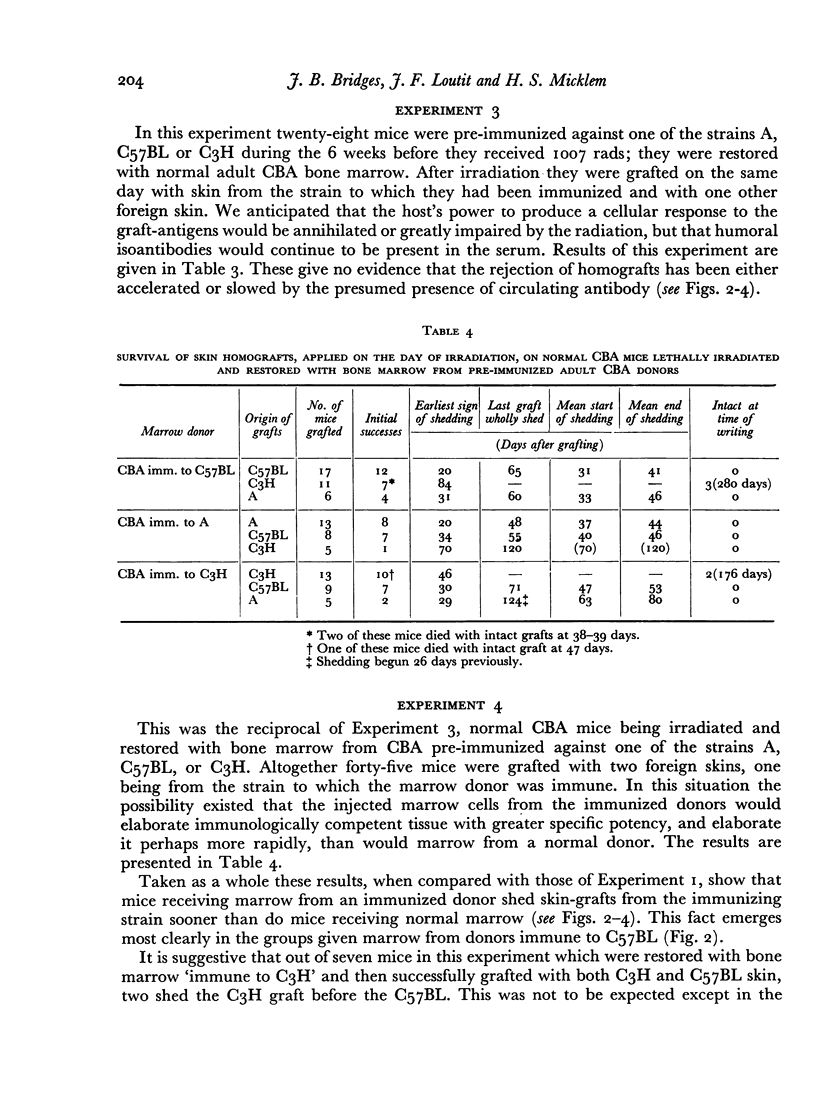
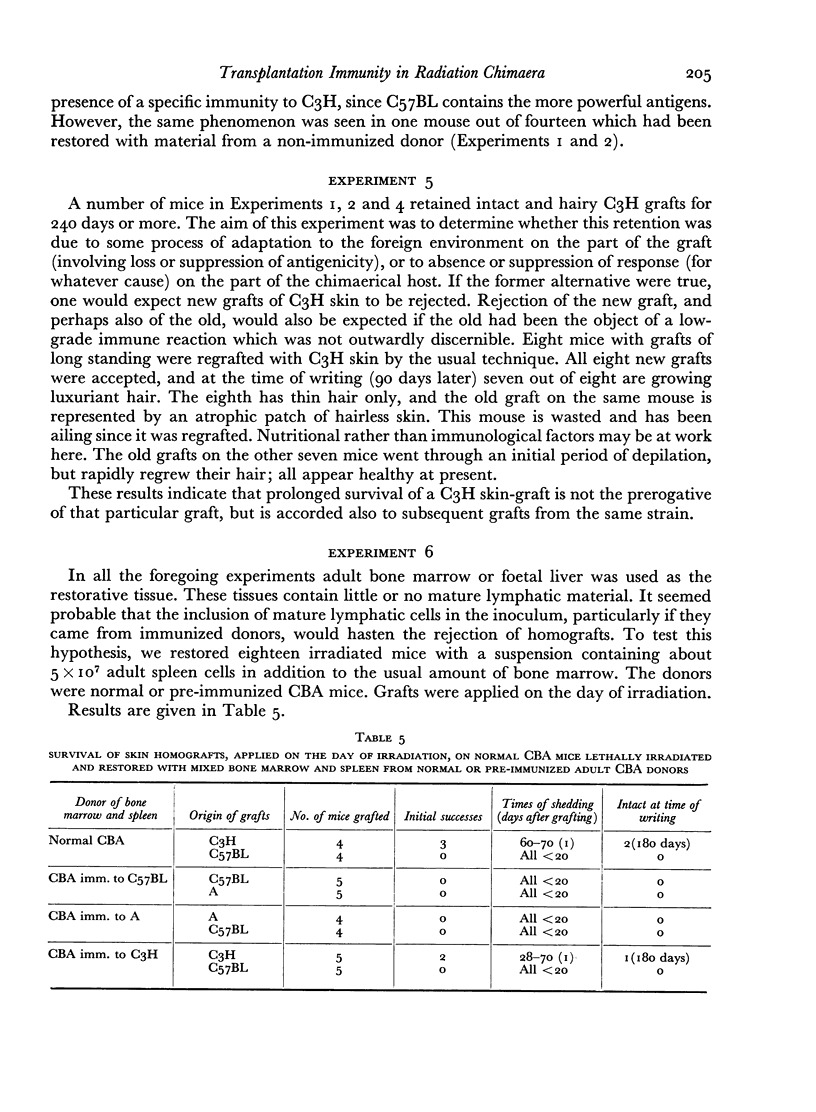
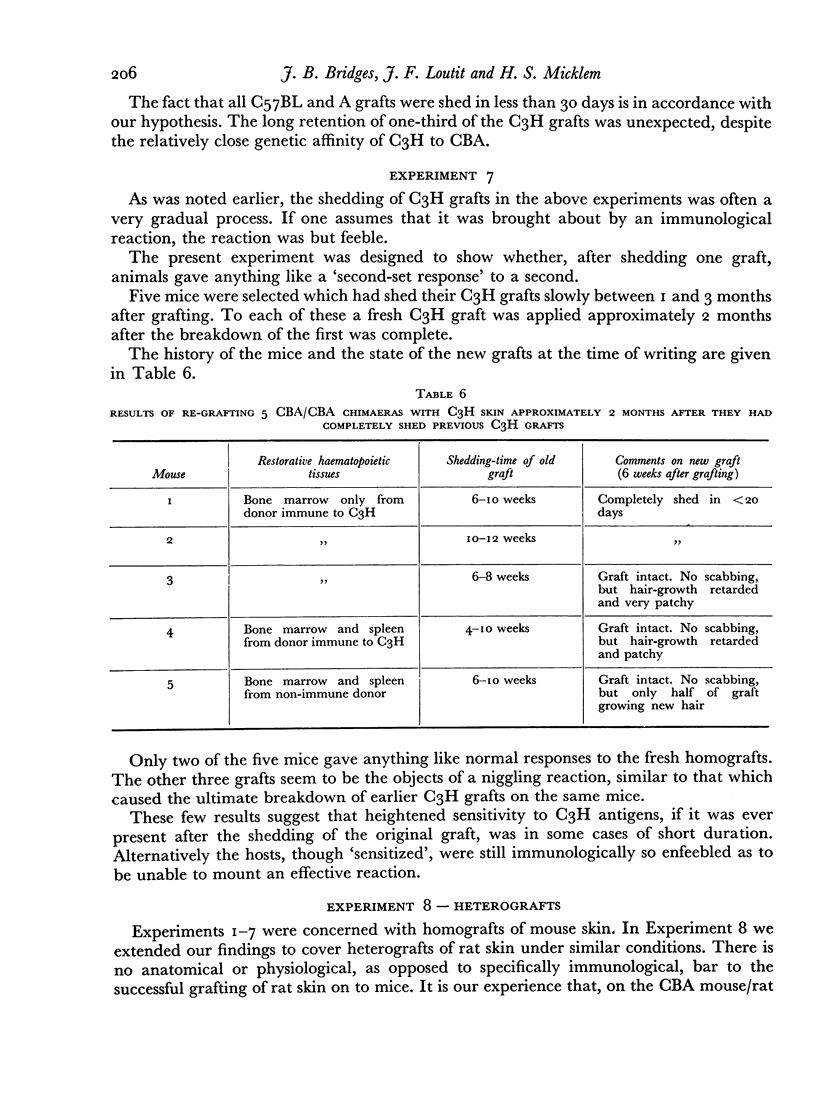
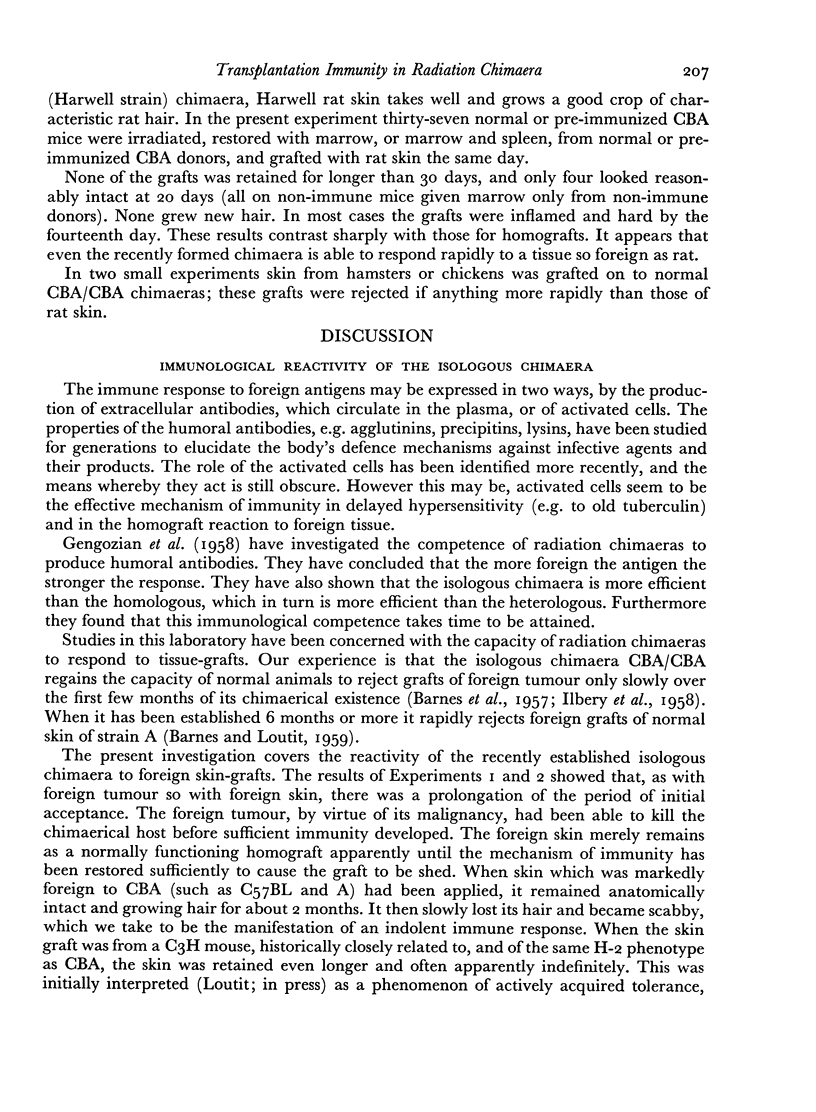
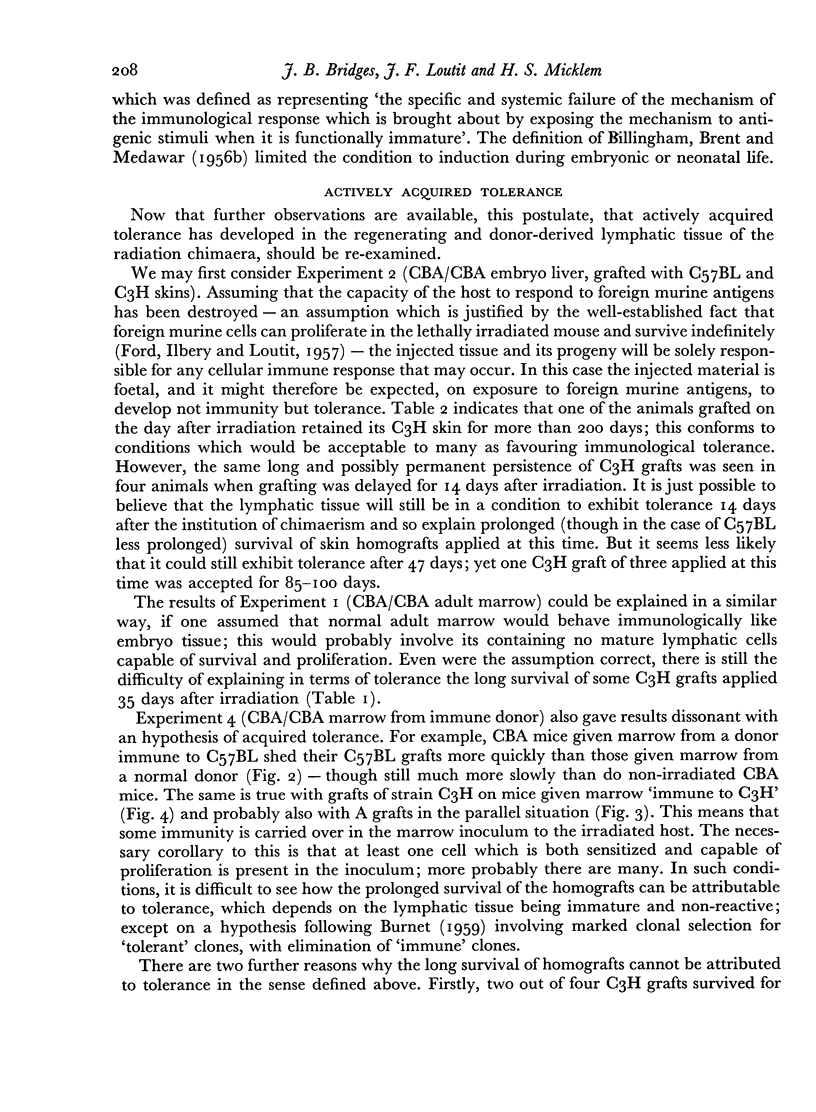
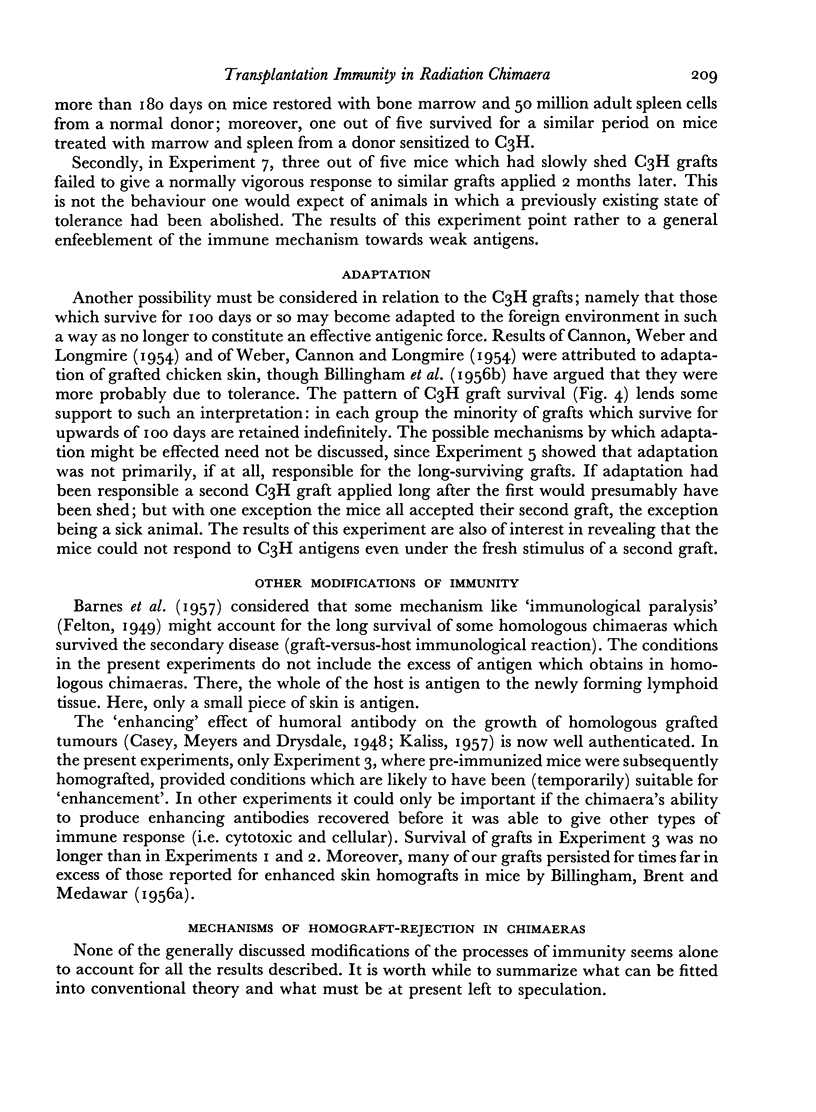
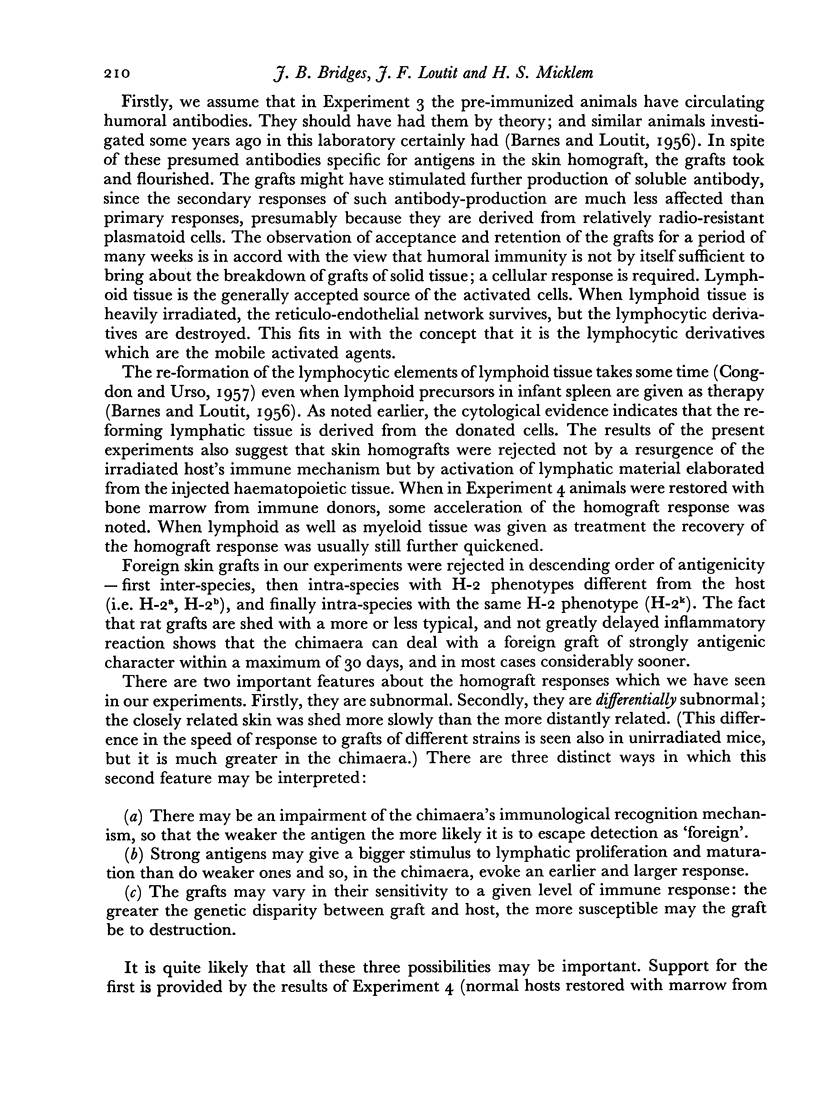
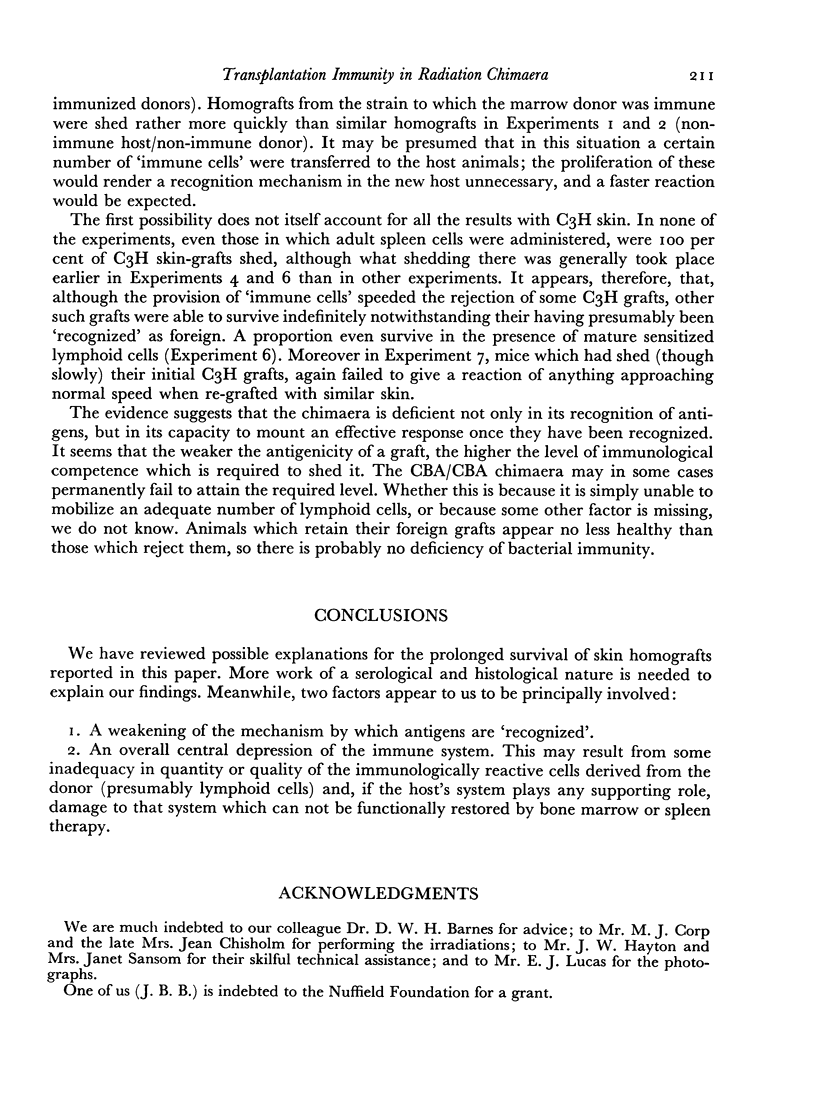
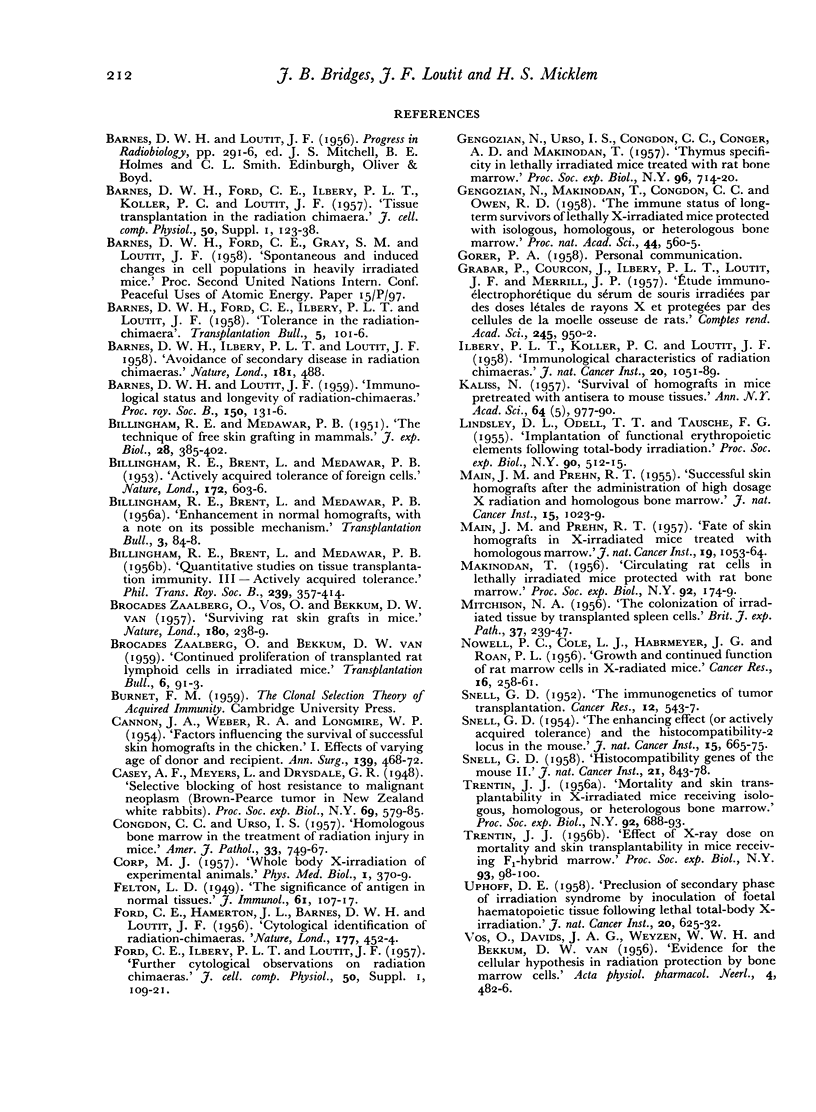
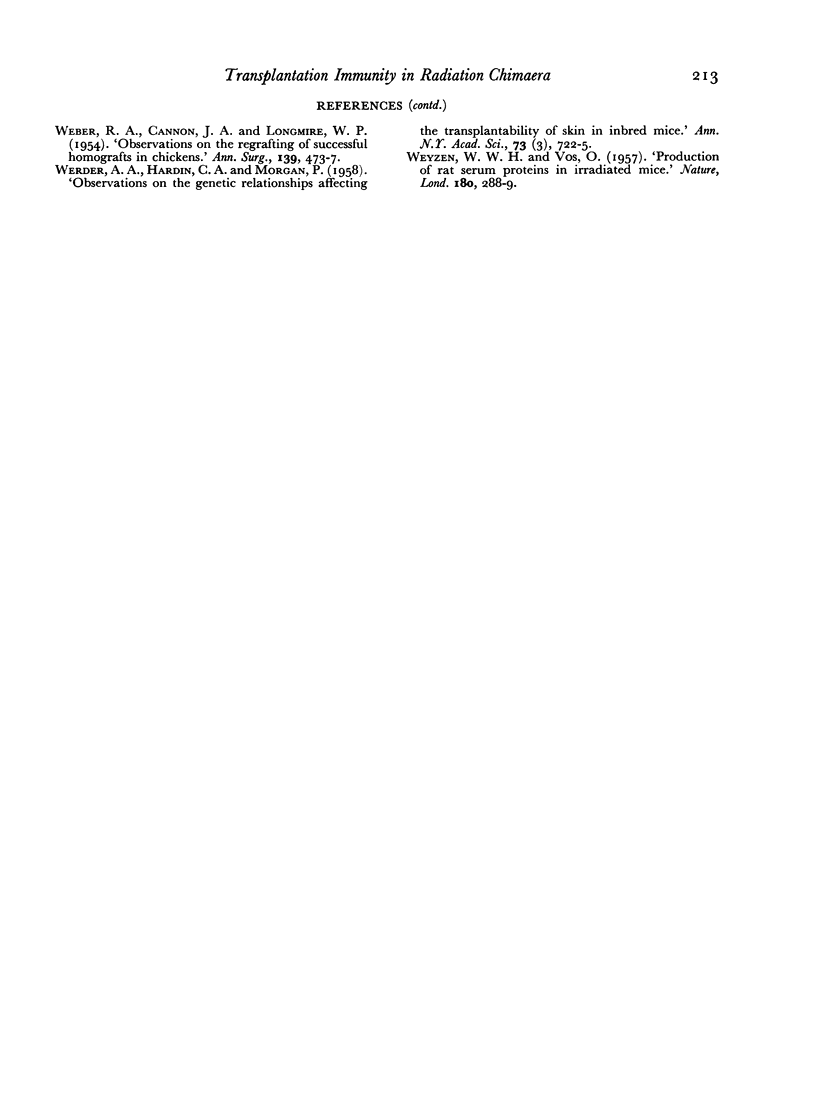
Images in this article
Selected References
These references are in PubMed. This may not be the complete list of references from this article.
- BARNES D. W., FORD C. E., ILBERY P. L., KOLLER P. C., LOUTIT J. F. Tissue transplantation in the radiation chimera. J Cell Physiol Suppl. 1957 Dec;50(Suppl 1):123–138. doi: 10.1002/jcp.1030500409. [DOI] [PubMed] [Google Scholar]
- BILLINGHAM R. E., BRENT L., MEDAWAR P. B. Actively acquired tolerance of foreign cells. Nature. 1953 Oct 3;172(4379):603–606. doi: 10.1038/172603a0. [DOI] [PubMed] [Google Scholar]
- BROCADES ZAALBERG A., VOS O., BEKKUM VAN D. W. Surviving rat skin grafts in mice. Nature. 1957 Aug 3;180(4579):238–239. doi: 10.1038/180238b0. [DOI] [PubMed] [Google Scholar]
- CANNON J. A., WEBER R. A., LONGMIRE W. P., Jr Factors influencing the survival of successful skin homografts in the chicken. I. Effects of varying age of donor and recipient. Ann Surg. 1954 Apr;139(4):468–472. doi: 10.1097/00000658-195404000-00010. [DOI] [PMC free article] [PubMed] [Google Scholar]
- CONGDON C. C., URSO I. S. Homologous bone marrow in the treatment of radiation injury in mice. Am J Pathol. 1957 Jul-Aug;33(4):749–767. [PMC free article] [PubMed] [Google Scholar]
- CORP M. J. Whole body x-irradiation of experimental animals; a short summary of the methods used at the M.R.C. Radiobiological Research Unit, A.E.R.E., Harwell, between 1949-1956. Phys Med Biol. 1957 Apr;1(4):370–379. doi: 10.1088/0031-9155/1/4/306. [DOI] [PubMed] [Google Scholar]
- FORD C. E., HAMERTON J. L., BARNES D. W., LOUTIT J. F. Cytological identification of radiation-chimaeras. Nature. 1956 Mar 10;177(4506):452–454. doi: 10.1038/177452a0. [DOI] [PubMed] [Google Scholar]
- GRABAR P., COURCON J., ILBERG P. L., LOUTIT J. F., MERRILL J. P. Etude immuno-électrophorétique du sérum de souris irradiées par des doses létales de rayons X et protégées par des cellules de la moelle osseuse de rats. C R Hebd Seances Acad Sci. 1957 Sep 2;245(10):950–952. [PubMed] [Google Scholar]
- KALISS N. The survival of homografts in mice pretreated with antisera to mouse tissue. Ann N Y Acad Sci. 1957 Mar 22;64(5):977-90; discussion, 990-3. doi: 10.1111/j.1749-6632.1957.tb52489.x. [DOI] [PubMed] [Google Scholar]
- MAIN J. M., PREHN R. T. Fate of skin homografts in x-irradiated mice treated with homologous marrow. J Natl Cancer Inst. 1957 Dec;19(6):1053–1064. [PubMed] [Google Scholar]
- MAKINODAN T. Circulating rat cells in lethally irradiated mice protected with rat bone marrow. Proc Soc Exp Biol Med. 1956 May;92(1):174–179. doi: 10.3181/00379727-92-22421. [DOI] [PubMed] [Google Scholar]
- MITCHISON N. A. The colonisation of irradiated tissue by transplanted spleen cells. Br J Exp Pathol. 1956 Jun;37(3):239–247. [PMC free article] [PubMed] [Google Scholar]
- NOWELL P. C., COLE L. J., HABERMEYER J. G., ROAN P. L. Growth and continued function of rat marrow cells in x-radiated mice. Cancer Res. 1956 Mar;16(3):258–261. [PubMed] [Google Scholar]
- SNELL G. D. The immunogenetics of tumor transplantation. Cancer Res. 1952 Aug;12(8):543–546. [PubMed] [Google Scholar]
- TRENTIN J. J. Mortality and skin transplantability in x-irradiated mice receiving isologous, homologous or heterologous bone marrow. Proc Soc Exp Biol Med. 1956 Aug-Sep;92(4):688–693. doi: 10.3181/00379727-92-22582. [DOI] [PubMed] [Google Scholar]
- UPHOFF D. E. Perclusion of secondary phase of irradiation syndrome by inoculation of fetal hematopoietic tissue following lethal total-body x-irradiation. J Natl Cancer Inst. 1958 Mar;20(3):625–632. [PubMed] [Google Scholar]
- VOS O., DAVIDS J. A., WEYZEN W. W., VAN BEKKUM D. W. Evidence for the cellular hypothesis in radiation protection by bone marrow cells. Acta Physiol Pharmacol Neerl. 1956 Mar;4(4):482–486. [PubMed] [Google Scholar]
- WEBER R. A., CANNON J. A., LONGMIRE W. P., Jr Observations on the regrafting of successful homografts in chickens. Ann Surg. 1954 Apr;139(4):473–477. doi: 10.1097/00000658-195404000-00011. [DOI] [PMC free article] [PubMed] [Google Scholar]





